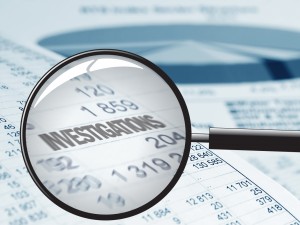Becoming a Forensic Accountant in the UK

Forensic accounting is the sub-field within accounting that focuses on financial investigations for legal purposes. With white collar crime becoming more and more sophisticated, coupled with emerging global financial threats such as money laundering for terrorist organizations, the role of forensic accounting in business is increasingly important.
Accordingly, forensic accountants are usually very highly remunerated and may find employment opportunities in practically every major industry. If you are very comfortable with figures and possess sharp investigative, analytical and problem solving skills, then you might have what it takes to succeed in this field.
This guide will show you how to become a forensic accountant in the UK if that is your career choice.
Instructions
-
1
Accounting Undergraduate Degree
If you would like to be a forensic accountant then the very first step you should take to realize this goal is getting a bachelor’s degree in accounting which will give you the basic skills required for an accounting career.
Although having a degree will be helpful, you may choose to instead pursue professional certifications in accounting, some of which may eventually lead up to a degree.
The more common practice amongst accounting professionals is to obtain a bachelors degree and then some professional certifications. -
2
Advanced Business Degree
As noted earlier, forensic accountants need to have a very high level of numerical, analytical and problem solving skills. An advanced business degree such as an M.B.A or a master’s degree in accounting may help you achieve this.
Additionally, you will receive greater recognition from both employers and clients, leading to a higher income and better employment opportunities. -
3
Professional Certifications
Professional certifications from accounting bodies differ from academic accountancy programs in that the material is more tailored for actual practical work as opposed to the more theoretical approach of standard universities.
For this reason, professional certifications are preferred to academic qualifications for core accounting jobs. However, a combination of both is always preferable to either.
The most recognized accounting bodies in the UK are:
Institute of Chartered Accountants in England and Wales (ICAEW)
Institute of Chartered Accountants of Scotland (ICAS)
Chartered Accountants Ireland
Association of Chartered Certified Accountants (ACCA)
Chartered Institute of Public Finance and Accountancy (CIPFA)
-
4
Become a Member of a Professional Accounting Body
Becoming a member of a recognized accounting body will help cement your reputation as a professional accountant. Please refer to the list above for respected accounting bodies, in the UK.
You should note that taking a course with a professional accounting body may not necessarily make you a member of that body.
You may need to look up specific accounting bodies to find out what their membership requirements are; however, they will usually include some commitment to continued learning and an annual subscription fee. -
5
Become a Chartered Accountant
Chartered Accountants could be described as accounting consultants and usually called upon to interpret and give their expert opinion on financial matters. To become a chartered accountant you will need to go through a practical training course usually lasting between 3 – 5 years at an accounting firm (or other appropriate business) approved any of the following three institutes for chartered accountants in the UK:
Institute of Chartered Accountants in England and Wales (ICAEW)
Institute of Chartered Accountants of Scotland (ICAS)
Chartered Accountants Ireland
Please note that there is a difference between a chartered certified accountant and a chartered accountant. The former is a title, ACCA (Association of Chartered Certified Accountants), members may use whereas the latter may be earned only after completion of the practical training course mentioned above.
To succeed as a forensic accountant you should aspire to be chartered accountant first, as forensic accountants are usually relied upon to be experts. -
6
Further Tips
As a forensic accountant, much of your time will be spent in court, so while in university, it might be a good idea for you to take a course in business law to familiarize yourself with legal principles and jargon.
Your IT skills will also need to be above average as the financial world relies heavily upon computer technology these days.






